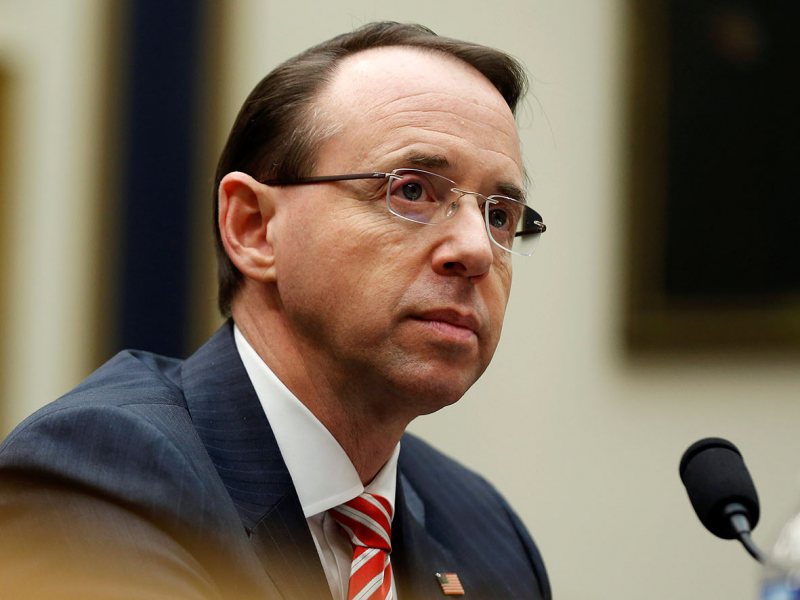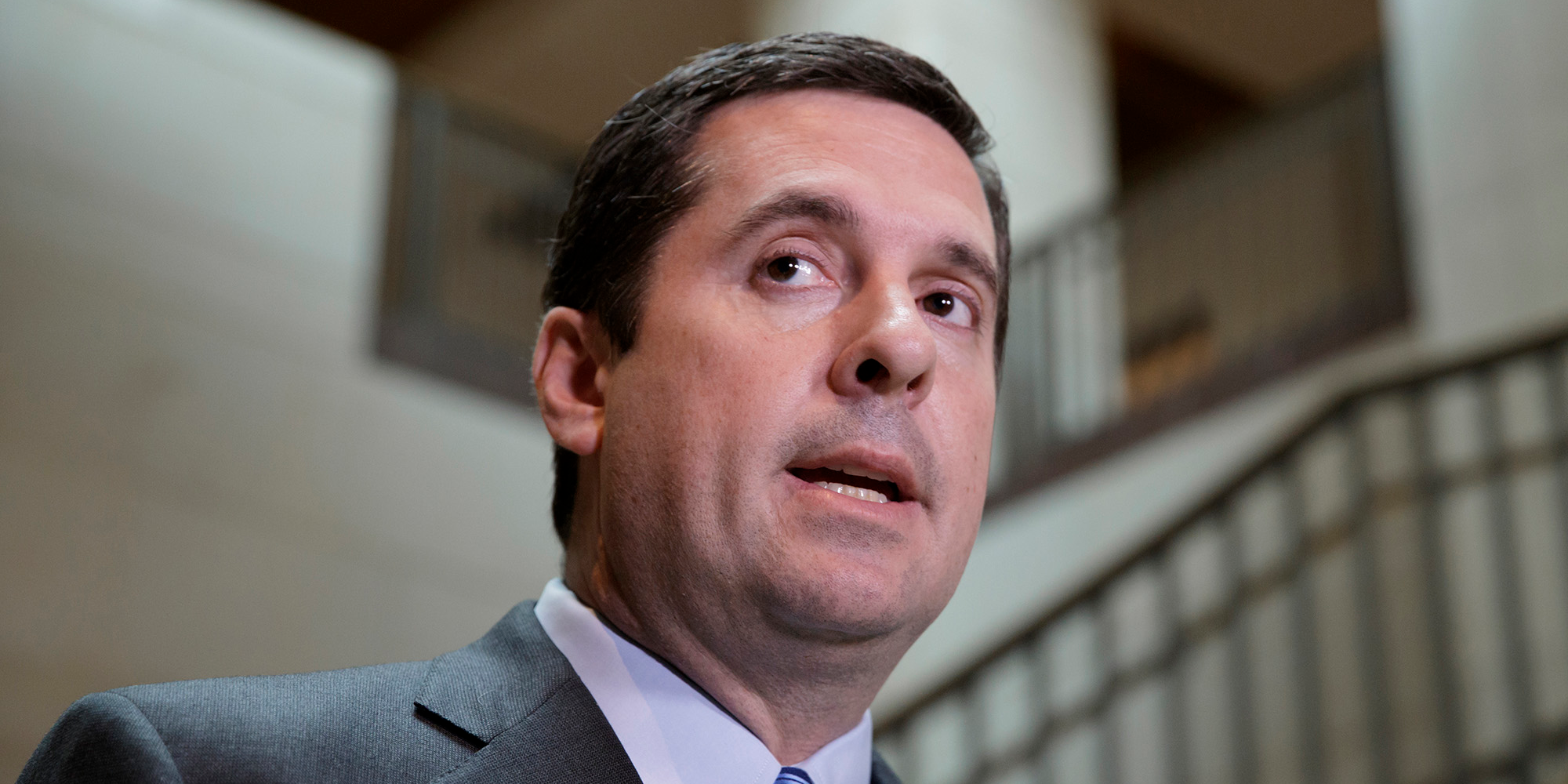- The Justice Department has turned over additional Foreign Intelligence Surveillance Act, or FISA, records related to the Russia investigation to House Republicans.
- Asked about the development, one former senior FBI official replied that the national-security implications could be “catastrophic.”
- Republicans say the DOJ has not responded to all their subpoena requests and indicated a willingness to hold deputy attorney general Rod Rosenstein in contempt of Congress if the department does not comply.
Sign up for the latest Russia investigation updates here»
The Department of Justice (DOJ) has turned over additional records of President Donald Trump’s associates related to the Foreign Intelligence Surveillance Act (FISA) to House Republicans, according to two congressional sources with direct knowledge of the matter.
The surveillance of Trump associates was conducted as part of the department’s Russia-related investigation, which is examining whether members of the Trump campaign colluded with Moscow to tilt the 2016 presidential election in his favor.
CNN reported that the DOJ also provided lawmakers with other FBI records related to the Russia probe and the investigation into Hillary Clinton’s use of a private email server when she was secretary of state.
The move comes as House Republicans and the White House continue pressuring the DOJ and deputy attorney general Rod Rosenstein to comply with subpoena requests for classified information.
While Republicans say the requests are part of their congressional oversight responsibility, Democrats accuse their colleagues across the aisle of using classified information to play politics and compromise the Russia investigation.
Leading the Republican charge are House Judiciary Chairman Bob Goodlatte, House Intelligence Chairman Devin Nunes, and House Oversight Chairman Trey Gowdy.
Nunes has been under the spotlight since last year, when it surfaced that he traveled to the White House to brief administration officials on classified information about the Russia probe before informing his colleagues on the panel. He has since been conducting a separate investigation into what he characterizes as surveillance abuses by the DOJ and FBI.
Earlier this year, Nunes drew scrutiny for publicly disclosing FISA information about the former Trump campaign aide Carter Page. And in April, the DOJ turned over the document that first prompted the FBI to launch the Russia probe to House Republicans.
The implications could be 'catastrophic'

Asked about lawmakers obtaining additional FISA records related to the Russia investigation, one former senior FBI official said it was "hard to put into words" how "damaging it could to be to national security if details about the US's most sensitive intelligence-gathering process leaked out."
"It would be catastrophic," they added. "Look at the damage that's already been done."
The immediate concern, said former CIA operative Glenn Carle, is that turning over information related to FISA records could compromise sources and methods.
"Congressional oversight is not operational control, it's policy control," Carle said. "So it's not really appropriate for an oversight body and its members to have detailed knowledge of sources and methods, because they are not trained in how to handle that."
Republicans said Friday that the DOJ still has not complied with all their requests and indicated that they would be open to using all tools at their disposal to compel document production.
Addressing the matter this week, House Speaker Paul Ryan said "we expect compliance." Ryan met with Goodlatte, Nunes, and Gowdy on Friday morning, CNN reported.
Nunes said there would be "hell to pay" if the DOJ does not comply with all document requests.
A spokesperson for GOP Rep. Mark Meadows, the head of the ultra-conservative House Freedom Caucus, said in a statement to Business Insider that "if the Deputy Attorney General continues withholding documents and denying Congressional requests for oversight, there need to be consequences."
"Contempt is certainly an option on the table," the spokesperson added.
Carle said it was telling that subpoena and document requests for intelligence related to the Russia and Clinton investigations have come from the Republican side of the aisle.
"If something is coming from an entire committee, rather than a party, then the government is speaking through that committee," he said. "If it's coming from one party, that indicates political bias and could skew the outcome and fly in the face of the oversight function itself."
Meanwhile, Republican threats to penalize Rosenstein have attracted significant media coverage and speculation about what it could mean for the DOJ if its No. 2 official is held in contempt.
In all likelihood, it would mean very little.
When either chamber of Congress votes to hold an official in contempt, the case goes to the US attorney's office in Washington, DC for criminal prosecution.
In other words, if the House votes to hold the deputy attorney general in contempt, "they'd essentially be referring Rosenstein to himself for prosecution," said Jeffrey Cramer, a longtime former federal prosecutor who spent 12 years at the DOJ.
In the event that Rosenstein is referred to the DOJ for prosecution and the department does not pursue the case - which, in all likelihood, it won't - then congressional Republicans could pursue civil charges against him.
But as of now, Cramer said, "They're just shaking their fists and making a lot of noise."

